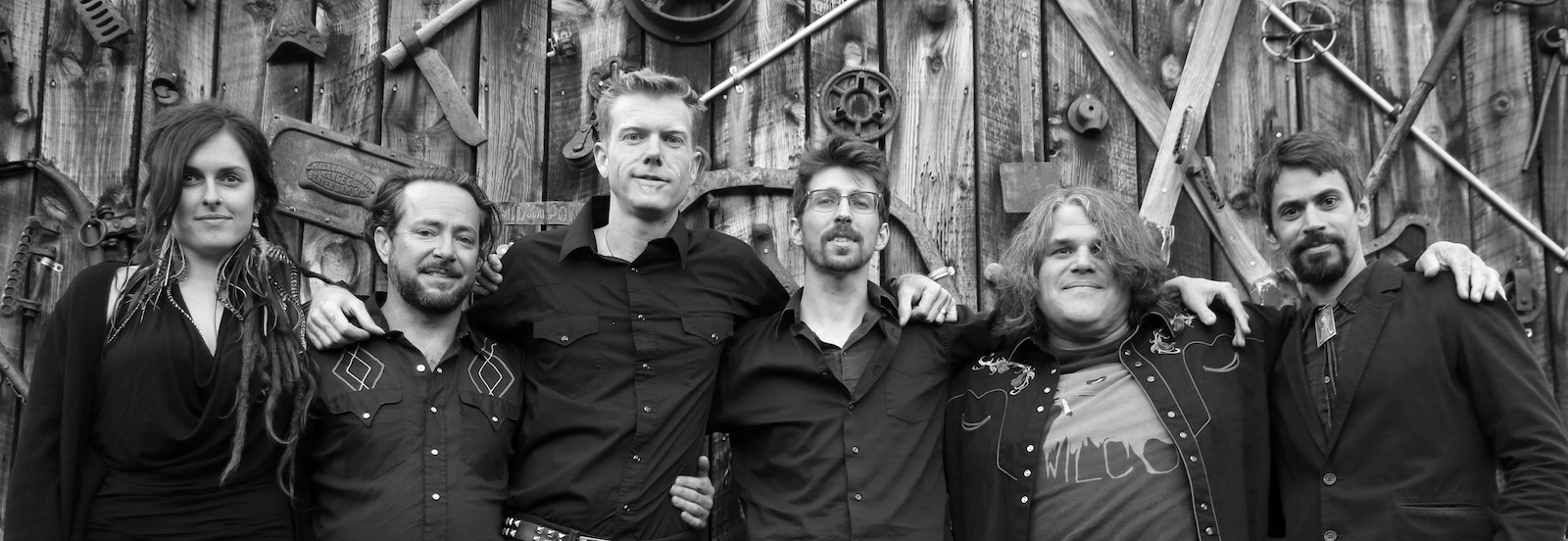The Local newsletter is your free, daily guide to life in Colorado. For locals, by locals.
The Gasoline Lollipops have been a lot of things during their six-plus year run: An acoustic punk duo, a rockabilly-inflected alt-country combo, amped-up “electric cow punk” rockers, and most recently, a multi-piece outfit churning out psychedelic classic Americana.
These evolving and unconventional self-descriptions come courtesy of GasPops’ front man and songwriter Clay Rose, whose notions and acceptance of life’s impermanence influence the core of everything he conceives. “They say the only constant is change, but humans want something to hold onto,” says Rose of his perpetually morphing musical instincts. He cites influences as varied as the Violent Femmes, Hank Williams, thrash-rockers NOFX, and the legendarily category-defying Leonard Cohen. (Rose’s four-year-old son’s name is Cohen.) “I might be a little ADD,” Rose says. “I like to mix things up, and I’m more of an alchemist than a musician.”

The things Rose held onto for many years were the overabundant crutches of drugs and alcohol—trying, he says, to find stability in the most unstable substances there are. “That gave me a sort of static plasticity, but if you do it long and hard enough you start to stop and wonder who the hell you are anymore,” he says.
Now sober for almost a year, Rose is unwilling—and unable—to leave his music behind, even if navigating that lifestyle can often be like tiptoeing through a minefield. He admits that some performance nights are more difficult than others because of all the typical ways people “tip” bands: by buying them a drink or offering them some other mind-altering morsel. These days, Rose says he sometimes “makes a compromise with the devil on my shoulder” and stays at whatever bar he’s just played, shooting pool and drinking Red Bulls. On other nights, he ghosts out for home to binge-watch Netflix.
Rose has been helped through this transition by a strong group of sober friends who attend GasPops’ shows and look out for him, a welcome buffer zone that enables him to keep doing what he loves. “Some sober circles will say when you get sober you have to change your playmates and playthings, but music is the one thing I can’t live without,” Rose says. “It’s my therapy. I don’t understand how people who don’t have the ability to scream their lungs out into a microphone on a regular basis can stay sane, because it’s an imperative for me. Otherwise I’d be one of those guys walking down the street screaming in people’s faces.”
For now, he’ll be able to keep screaming into the mike. The GasPops are currently recording a new album, Resurrection, that’s scheduled to be released on Valentine’s Day. It’s the concluding chapter in a trilogy that began with Death and Dawn, two records that combine brooding, introspective ballads with rambling outlaw country rocker tunes that showcase the electrifying musicianship of Rose’s band mates, including guitarist Donny Ambory, bassist Brad Morse, drummer Adam Perry, and fiddler Jeb Bows (who also plays with fellow Boulderite Gregory Alan Isakov).
Over the next month or so, the band will play the new 500-seat Caribou Room in Nederland on September 23; Winter Park’s Ullrs Tavern on October 1; Swing Station near Fort Collins on October 14; and the Hi-Dive on November 10. They’re hoping that these shows—at venues that are larger than most of the bars they typically play—along with the upcoming release will help them graduate to that next step: a deal with an agent and a record label. “We’ve always been a DIY outfit, but now we’re shopping around for agents and management because the business side has gotten too big and busy for us to handle alone,” Rose says. “We feel like the Caribou show will hopefully be our grand entry into our next level of musicality, an uncomfortable but exciting metamorphosis from caterpillar to butterfly. It’s a leap of faith, but we’re hoping our fans, in-laws and ex-laws will all come out.”
Regardless of where this fork leads, it won’t affect Rose’s overall path or the way he finds inspiration and turns it into his own distinct sound, which he describes as “just pulling from my musical influences, putting it in the pot, stirring it around, then adding my own personal brand of heartache to it.”








